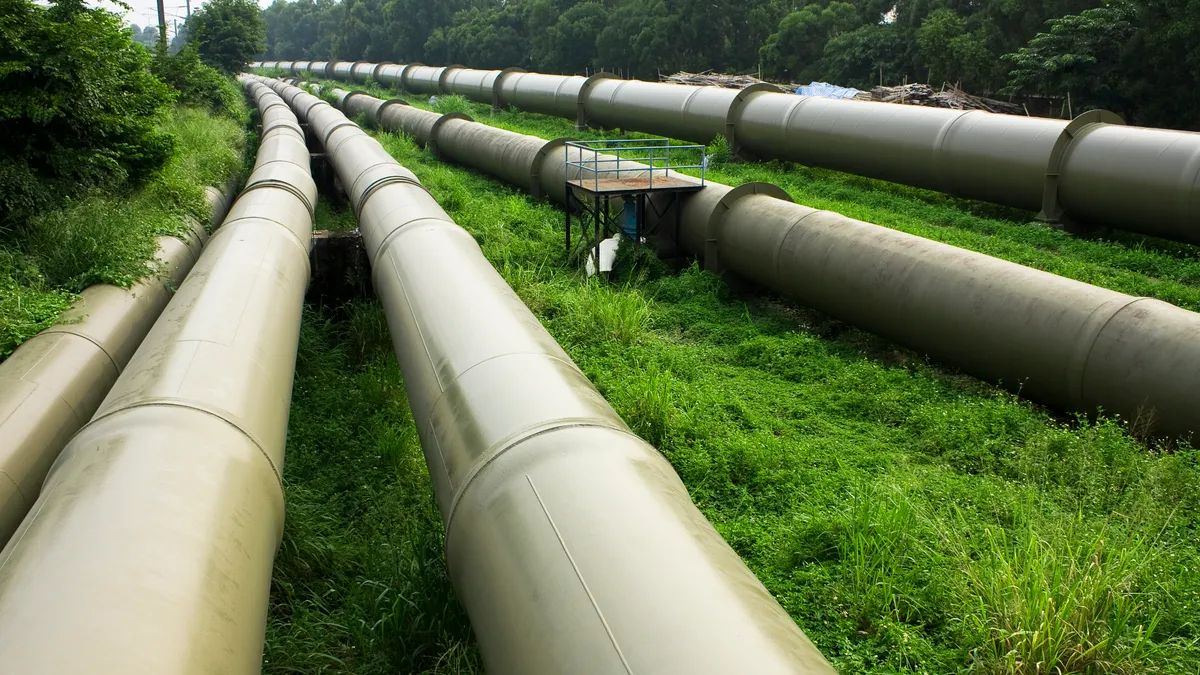Dive Brief:
- The U.S. House of Representatives passed two measures to streamline and simplify the review of oil and gas pipelines, but opponents say the agency in charge is already rubber-stamping energy projects.
- The Promoting Interagency Coordination for Review of Natural Gas Pipelines Act (HR 2910), would strengthen the Federal Energy Regulatory Commission's position as the lead review agency on energy projects and would allow the commission to set deadlines for other agencies and state regulators.
- The Promoting Cross-Border Energy Infrastructure Act (HR 2883), would give FERC final authority over pipelines now crossing the United States border with Mexico or Canada, moving final say away from the State Department.
Dive Insight:
Both bills passed along largely partisan lines, with only one Republican opposed to either measure and less than two dozen Democrats in favor.
HR 2910 was approved 248-179, while HR 2883 moved forward on a 254-175 vote.
Rep. Fred Upton (R-Mich.), chairman of the House Energy and Commerce Committee, spoke in favor of designating FERC as the lead agency. "This bill is going to bring greater certainty, accountability, and transparency to the siting process for interstate natural gas pipelines," he said on the House floor. "Unfortunately, many important projects have been delayed unnecessarily while waiting for permits from participating agencies."
But opponents say that FERC already approves almost every project it sees. Karen Feriden, founder of Berks Gas Truth, told Think Progress that the commission has become a darling of Republican lawmakers “because they know they’re going to get what they want."
Neither bill has a companion piece of legislation in the Senate.
As some regions of the United States have become more reliant on natural gas for power generation, project developers have warned an inability to move sufficient fuel could leave millions of residents facing higher bills and less reliable energy.
PJM Interconnection and ISO New England have both raised concerns about the difficulty in developing new gas pipeline capacity, potentially putting their availability to procure fuel at risk in the colder months when heating demand spikes.















